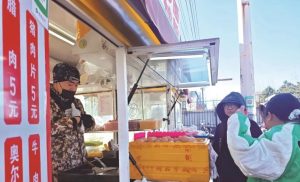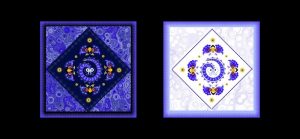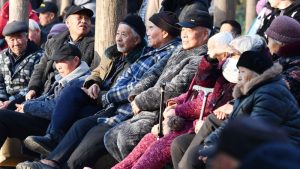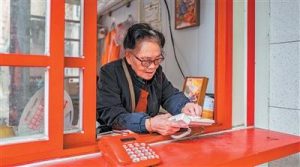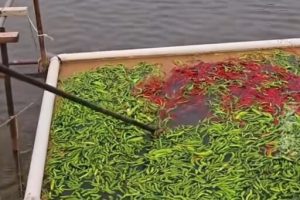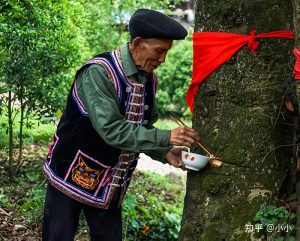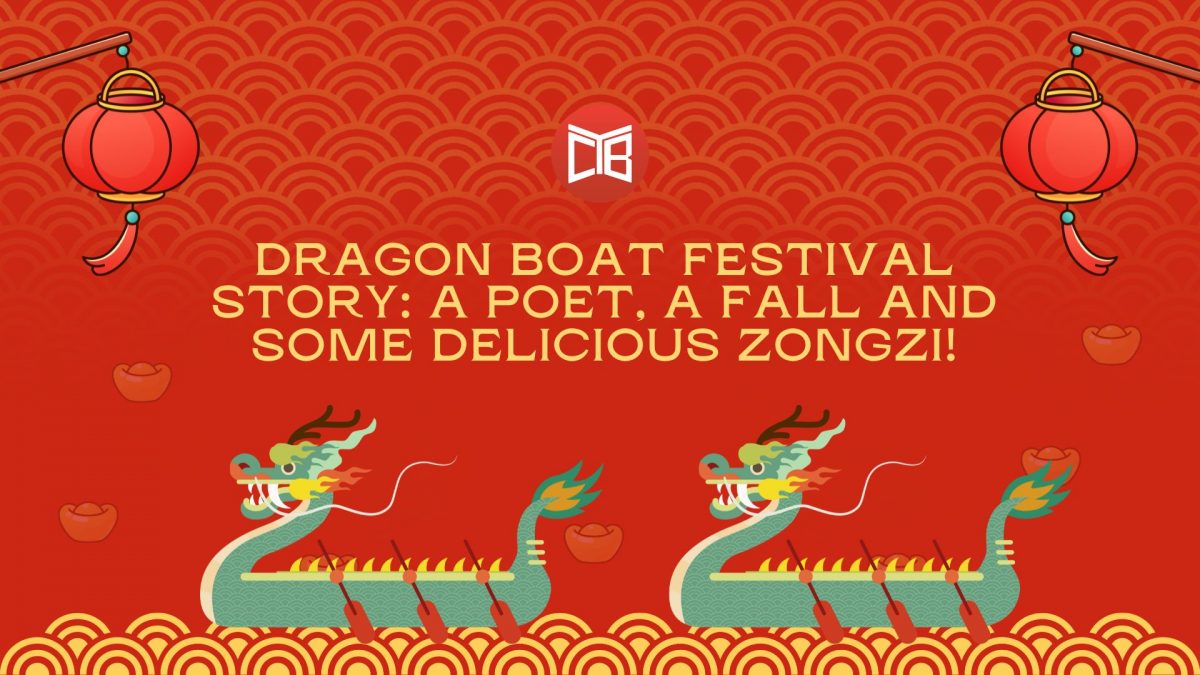
The Dragon Boat festival, also called Duānwǔ Festival or 端午节, is one of the three main festivals in China. It will be celebrated this year on June 10th with three days of public holiday. Do you know that Duānwǔ Festival is the only traditional Chinese festival recognize by UNESCO as Intangible Cultural Heritage? This is quite something!
The Dragon Boat Festival story dates back more than 2,000 years. This unique festival comes from the combination of three intriguing components: A poet (who was also a senior official in the Chinese government), a suicide and some delicious food! Pretty interesting, isn’t it?
The Duānwǔ Festival story is a perfect reflection of the Chinese society during the Warring States Period (475-221 BC). It also shows how poetry and politics were intrinsically related at that time and how officials were devoted from life to death to their convictions.
In this article, we will learn what happened to the poet Qu Yuan 屈原, why people eat zòngzi 粽子 during Duānwǔ Festival and why Dragon Boat racing lóngzhōu bǐsài 龙舟比赛 are still happening all around the word during these festivities.
Historical Context: Warring States Period and the Origin of the Dragon Boat Festival
Duānwǔ Festival as we know it nowadays has its origins in the Warring States period 战国时代 Zhànguó shídài (475-221 BC). At that time, China was composed of seven feuding kingdoms (Chu, Han, Qin, Wei, Yan, Qi and Zhao: 战国七雄 Zhànguó qīxióng). Each kingdom was fighting to get control of the whole territory in order to become the only kingdom of China and by that we mean, the first empire. Between 535 and 286 BC, 356 wars occurred between the different kingdoms, giving the name to this chaotic period: Warring States Period.
During that period, it was common to see poets and scholars working for governments. It was actually encouraged to have more poets and scholars working for government offices. It was believed that with their knowledge and talent, they would easily express themself during meeting between the different kingdoms. It would also make them suitable to be consulted for important political matters.
A very important fact is that at that time, when there were “diplomatic” encounters between kingdoms, it was appropriate for leaders to express themselves in what we can call a “subtle language”: lots of metaphors and indirect meanings. If you are familiar with Chinese culture and language, you know that this is a particularity of the language. Culturally and linguistically speaking, Chinese people are not direct when they express themselves. Is this particularity of the language coming from the Warring States Period? This would be another subject to investigate.
Qu Yuan’s Story: The Heart of Duānwǔ Festival
Qu Yuan, Born in Danyang 丹阳 in 339 BC, was one of these poets having a double life: Poet and government officer. Known as the “Ancestor of Chinese poetry”, he was a descendant of the Chu kingdom royal family. His passion for his homeland and poems were what defined him the best. He is the author of many famous poems such as Lament for Ying 哀郢 āiyǐng, where he expressed his concern for the future of his homeland. Another important fact is that Qu Yuan was the first poet to have his name associated to his work. Before him, poets were anonymous.
A passionate man tortured between his poetry and the future of his kingdom, Qu Yuan had to exile many times during his life due to jealous ministers who slandered him. During his exiles, he collected folktales and folk odes, creating some of the greatest poetry in Chinese literature. Qu Yuan always stood for the people of the Chu kingdom. This explains why, after the ruler of Chu kingdom was fully corrupted and that Qu Yuan’s kingdom was captured by Qin kingdom, there was no hope left for him.
After writing his longest poem called Encountering Sorrow 离骚 Lísāo, where he talks about his sadness for his defeated kingdom, Qu Yuan decided to finish his life. He walked to the Miluo River 汨罗江 Mìluójiāng in the Northern Hunan province and jump into the river to end his misery. It it said that Qu Yuan had been fighting with anxiety and depression in the last years of his life according to the Record of the Grand Historian 史记 by Sima Qian 司马迁. His idealist vision of society made him the earliest patriot figure in China’s history.
Importance of poetry in politics
During the Warring States Period, poetry and politics were one. Government officers were using poems to express their insatisfaction toward the political leaders. The government was also taking the pulse of the population through their writings. Direct protestation was impossible and people needed to use subterfuge to express their frustration toward the political system. This type of expression, writing owns’ frustration and thoughts into poems, was so common in ancient China that a saying expressing the whole concept was created: 诗言志 shīyánzhì: “Poetry expresses the mind”. This concept shaped the Chinese poesy and was used afterward during many centuries by all levels of society.
Zongzi: The Glutinous Rice Dumplings of Duānwǔ Festival
So what is the relation between poetry, zongzi and Duānwǔ Festival? Let’s go back to when Qu Yuan committed suicide. After he felt in the Miluo River, people living around the river ran to save him from drowning. They sent boats to save Qu Yuan but were unable to find him. In a last attempt to save his body, they threw glutinous rice in the river to feed the fish and make sure the fish would not eat Qu Yuan’s body. Starting from that moment, year after year, people commemorate Qu Yuan by throwing glutinous rice in the river to show their respect and gratefulness. His patriotism has always been an example for the Chinese people.
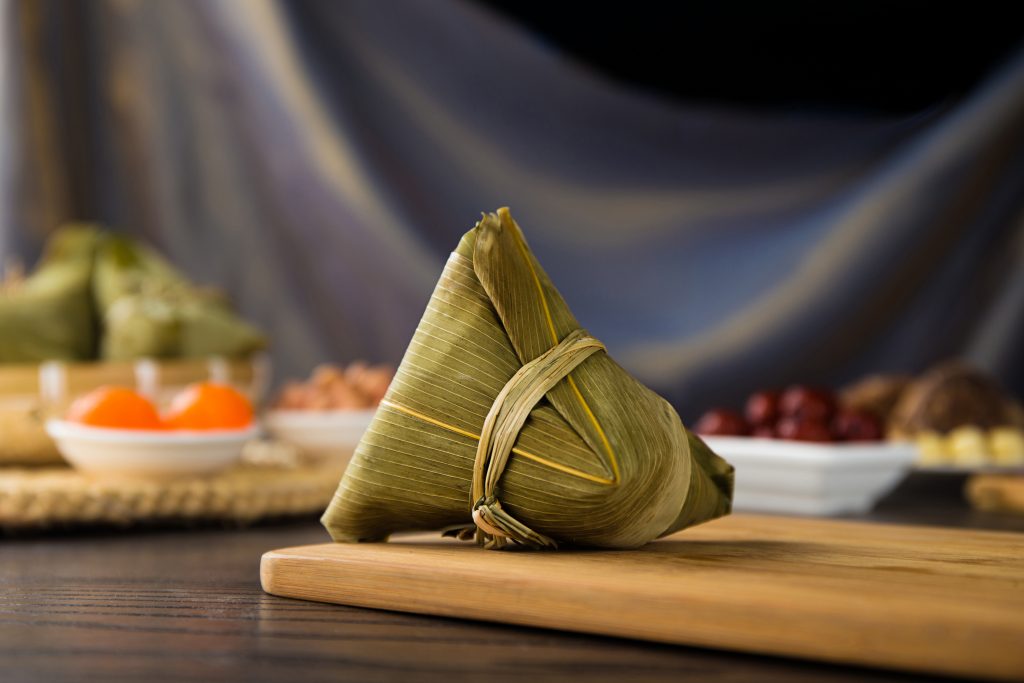
What’s inside zongzi?
Zongzi can be filled with a large variety of ingredients, but they are mainly sweat or salty.
Sweet zongzi: Filled with red bean paste, marinated or dry jujubes and marinated fruits.
Salty zongzi: Filled with pork belly, sausages, split bean mungs, peanuts, egg yolk, just almost anything can be put in a salty zongzi, even fish!
The wrapping: The legend says that Qu Yuan came back after a few centuries to tell the people to wrap the glutinous rice into leaves so the dragons could not eat the rice! Since then, people wrap rice most often in bamboo leaves.
However, Northern people sometimes find that bamboo leaves have a bad smell and prepare it in reed leaves. Other types of leaves can be used such as argy wormworth leaves, also used in Chinese medicine. The leaves from that plant emanate marvelous smell and taste once eaten.
Leaves preparation: This part is pretty easy but long: First you have to put vinegar in boiling water and put the leaves in it for a few minutes. Then, you rinse it with cold water and let the leaves soak for a period between one and seven days (do not forget to change the water every day!). After that, you will be left with nice pliable bamboo leaves ready to prepare the zongzi!
The meaning of Duānwǔ and the month of poison or 五毒 wǔdú
Duānwǔ doesn’t mean Drabon Boat as many may think. Duān 端 means beginning and wǔ 午 means noon. With time, the character 午 was changed to its homonym 五 wǔ that means five. It represented the beginning of the fifth month in the Chinese calendar. It is the date of Qu Yuan’s death and of course the date for the Dragon Boat racing.
That fifth month was an inauspicious month in ancient China. With the beginning of hot days, people felt sick and epidemics spread more easily making that month the evil month. It was also seen as the “poison month”, where the “five poisons” 五毒 wǔdú, came to make people sick: Snakes, scorpions, toads, lizards and centipedes. These poisons were seen as most potent on the fifth day of the fifth month, the day of the summer solstice, which is also the Duānwǔ Festival. At that time, people used charms to counter the danger of the five poisons.
Nowadays, to discourage diseases, people hang different types of charms to their house doors such as Calamus and Mugworth leaves. These are strong to deter flies and mosquitos.
Perfume pouches filled with herbal medicines are also offered to children before Dragon Boat Festival to protect them from diseases. The parents hang the pouches around their necks to protect them from evils.
Dragon Boat Racing: A Tradition of Duānwǔ Festival
Even if the Dragon Boat Festival is associated with the death of Qu Yuan, there is evidence showing that it existed way before the poet’s death. Therefore, there are two possible explanations for why we have Dragon Boat competitions: The first one is that this tradition started when people used boats to save the body of Qu Yuan who threw himself in the Miluo River. The second explanation is that dragon boat racing was a way to worship the Dragon God or Water God, a long time before the death of Qu Yuan.
For people believing in Qu Yuan’s reason for Dragon Boat competitions, they see it as a sign of patriotism, since participating in this kind of competition requires group integrity, a value that Qu Yuan cherished during his entire life. Both explanations coexist in folklore, and everyone is satisfied with it.
Nowadays, people participate in this competition for fun, even if the tradition says that if you win, you will have good luck and happiness in the following year.
Conclusion: Duānwǔ Festival’s Unique Place in Chinese Culture
The Duānwǔ Festival is one that really stands out among other Chinese festivals due to the complexity of the political situation at the time of its possible creation and with the health issues caused by the weather on the fifth month. It is astonishing that it was so well preserved and transmitted generations after generations until today.
As you may have noticed, the story behind the Duānwǔ Festival is not necessarily joyful compared to other Chinese festivals. This is why we do not really wish each other “Happy Dragon Boat Festival” when meeting someone on that day. What can be mostly written in emails is “Duānwǔjié ānkāng” 端午节安康, meaning I wish you a healthy Duānwǔ Festival!
Author
Manon Garceau
Manon is a long time passionate about Chinese language and culture. She majored at the University of Montreal in East Asian Studies and then spent 15 years in Taiwan and a few months in Tianjin working as an interpreter and translator. After completing a Master for Teaching Chinese as a Second Language at Taiwan Normal University, she moved to Barcelona where she worked at The Confucius Institute as a Chinese teacher. Her experience as a Chinese interpreter for Cirque du Soleil is the highlight of her career until now.








